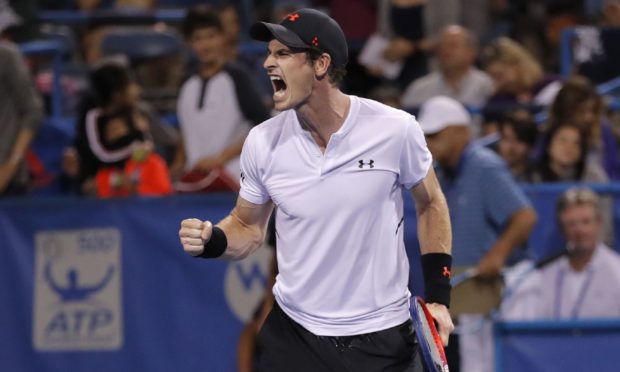It has been one of the recurring themes of my life covering sport: whenever any Scottish or British team achieves success on the world stage, there are lots of honeyed words about “legacy”.
The word was bandied around after the 2012 Olympics in London and flourished with similar enthusiasm following the Commonwealth Games in Glasgow two years later.
It has also been used frequently during Andy Murray’s repeated triumphs on courts across the globe and there’s no denying the impact which he has his mother, Judy, have made in persuading scores of their compatriots to pick up a tennis racquet.
But here’s the rub. Platitudes cost nothing. Politicians of all hues might have been quick to rush onto social media to celebrate Scotland’s dramatic victory over France in the final contest of the 2021 Six Nations Championships.
Yet how many of these people have attended a club rugby match in their homeland in the last five years? How many will be interested in returning to the grassroots after the Covid lockdown restrictions have finally been eased and spectators can once again walk through the gates and be allowed to cheer on their community clubs?
More pertinently, when it comes to cricket and rugby, how many of these organisations will still be in existence in the future, given the massive problems which have befallen a lot of them without fixtures, access to bar takings, and an ageing volunteer base?
Much has rightly been made about the issues affecting the entertainment industry with the closure of music venues, theatres and concert halls, which have caused significant grief in the last 12 months. But less has been written in relation to the travails of those who have attempted to keep community sport alive in very challenging circumstances.
Even prior to the pandemic, I talked to officials in rugby, in squash, in athletics, cricket and a range of other activities, who were voicing concerns about shrinking participation numbers throughout the north-east of Scotland. It’s not all doom and gloom, but the picture around youngsters involved in these pastimes is genuinely alarming.
Schools have been shut for most of the past year, while gyms still have their doors closed. It’s easy for politicians to wax lyrical about the benefits of physical exercise and club membership as a means of tacking obesity and boosting mental health, but when we emerge into the post-Covid domain in the months ahead, it will take more than rhetoric.
We have just finished an election campaign in Scotland, which featured intense debate about myriad subjects, including independence, Brexit, law and order, jobs, health and education. But there was nothing from the party leaders or their candidates about how they intend to boost the mood of the nation – and especially young people who are facing a plethora of problems.
I’ve often wondered why sport gets lumped together with culture and the arts at Westminster. In Scotland, it is associated with public health which seems sensible, considering the abundance of evidence that clubs, community centres, swimming pools and gyms are inextricably linked to promoting a better lifestyle and positive outlook?
We’ll need these attributes to tackle such matters as anxiety, depression, social isolation and low self-esteem and there is no better way to increase young people’s confidence and mental and physical well-being than by giving them access to tennis courts, athletics tracks, aquatics facilities and cricket, football and rugby fields.
An episode of The Thick of It from a decade ago featured a fictional government department approaching Andy Murray to be the face of a new initiative.
But while it all went pear-shaped in the programme, sparking a typically blistering foul-mouthed meltdown from Malcolm Tucker, I think it would be a terrific idea for somebody such as the Dunblane star – who has shown an interest in and knowledge of a wide range of social issues – to become the head of a campaign to encourage more Scots to join their local sports clubs.
That could be the catalyst for transforming the current situation where the majority of us would rather remain armchair viewers than take the decision to get out and pick up a ball, racquet or club – or make a splash in a pool or jump on their bike and head off into the great blue yonder. But there appears to be little commitment to tackling this problem from any political party. After all, can you name the most recent minister for (public health and) sport at Holyrood? Well done if you answered Mairi Gougeon – who succeeded Joe Fitzpatrick in the role at the end of 2020.
I appreciate that sport is often regarded as being trivial in the grand scheme, and its importance can be overstated. But, in the coming months, especially as politicians fling insults at one another, it might be one of the few things which unifies us, whether in watching Scotland at the European Championships or cheering on the likes of Laura Muir, Jemma Reekie, Jake Wightman and Zoey Clark at the Olympics.
If there is any success for these teams and individuals, the Twittersphere will doubtless praise them to the skies. But there is no elite sport without grassroots organisations and it’s time the politicians realised that.
